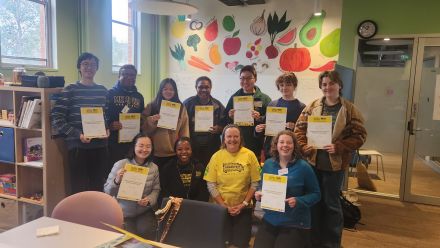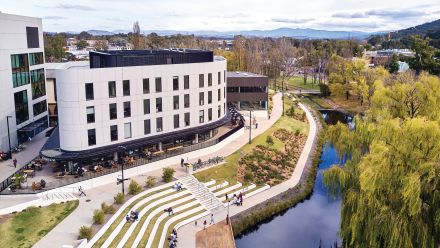A GP with his finger on the pulse of Indigenous communities
Meet Jason Agostino, a GP and epidemiologist at our ANU Medical School and Research School of Population Health (RSPH) who specialises in Aboriginal and Torres Strait Islander health.
He's passionate about his work to improve the wellbeing of Indigenous communities, beyond just treating individual patients. In addition to his role at ANU, he works as a medical advisor at the National Aboriginal Community Controlled Health Organisation (NACCHO) and as a GP at Gurriny Yealamucka Health Service.
Like all Australians, Aboriginal and Torres Strait Islander people's lives have been significantly disrupted by COVID-19.
The NSW outbreak has highlighted that Aboriginal and Torres Strait Islander people remain vulnerable to COVID due to crowded housing and chronic conditions that place them at higher risk of severe disease, Jason says.
"This vulnerability has played out in NSW and we have now had hundreds of cases in NSW, with half of those in the West and Far West among communities with large Aboriginal and Torres Strait Islander populations. Yesterday, we had our first death.
Jason says this past month has been very hard on many communities in NSW, as will be the coming months.
"Thankfully, local and national governments continue to listen to Aboriginal and Torres Strait Islander leaders on how to address this problem. But with low vaccination coverage and crowded homes, it is likely case numbers will continue to rise for some time," he says.
"ANU has continued to support the pandemic response and a number of epidemiologists from the Aboriginal and Torres Strait Islander wellbeing team in RSPH have gone to support the outbreak response in Dubbo and surrounds."
The other challenge is to quickly increase vaccination rates in the jurisdictions where there are currently no cases, Jason says.
"In NSW, ACT and Victoria, the current weekly rate of vaccination means we will achieve 80 per cent coverage in the population of those aged 12 and over at the same time, if not earlier, than the non-Indigenous population.
"This is not the case in other jurisdictions and we need to use this time to rapidly increase vaccination.
"This requires all parts of the health system to prioritise vaccinations for Aboriginal and Torres Strait Islander peoples."
Jason says the entire health care system has a lot to learn from the systems designed by the Aboriginal and Torres Strait Islander community.
"COVID has shown the importance and power of Aboriginal and Torres Strait Islander peoples' leadership and what can happen when governments support communities to make the decisions that impact their lives," he says.


